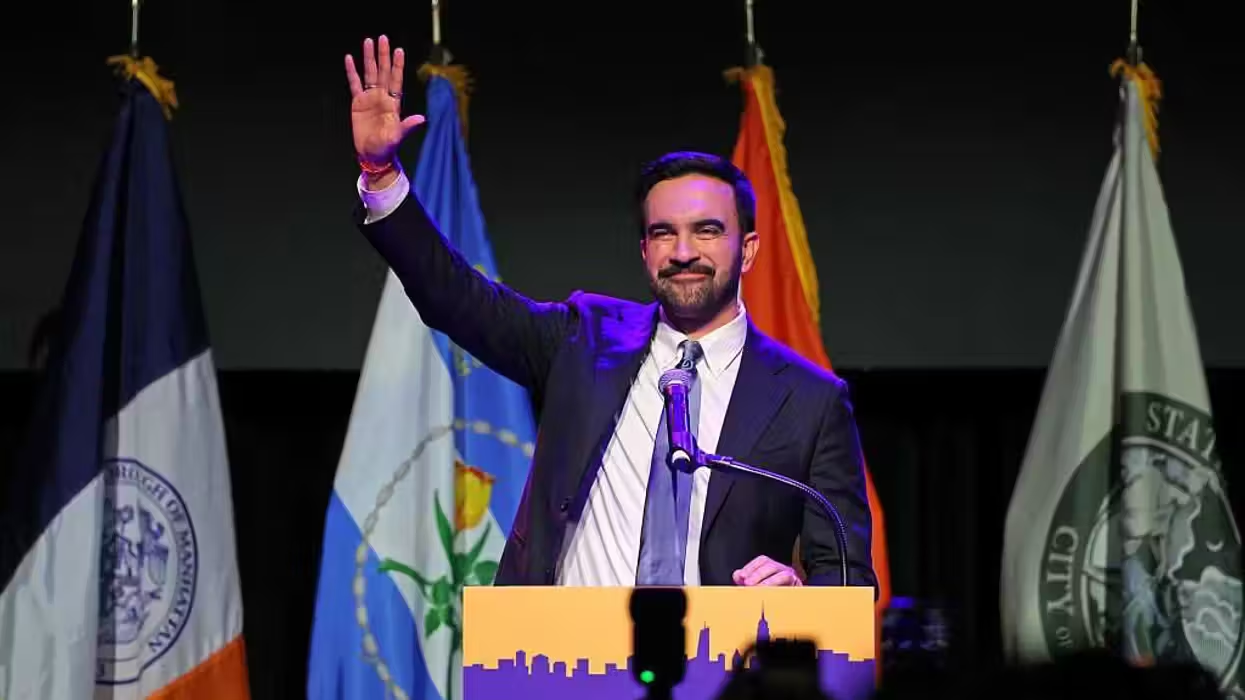
© 2025 Blaze Media LLC. All rights reserved.
An excerpt from Mark Spitznagel's fantastic book, 'The Dao of Capital.'
In "The Dao of Capital," a 2013 book we will be covering in the coming days, hedge fund manager Mark Spitznagel, founder of Universa Capital, and former partner of popular author and investor Nassim Nicholas Taleb (he of black swans) explains how he became an acolyte of the Austrian school of economics (links added by Blaze Books):
"It started in a fortuitous economics course at Georgetown University taught by Professor George Viksnins ("Uncle George"). It is most fitting to gain the greatest insight about markets from those who fled antimarket regimes, in his case in Latvia. Uncle George's declared favorite economist was Joseph Schumpeter, a wavering Austrian, to be sure, but close enough to pique my interest. And from there I discovered a book by Henry Hazlitt titled Economics in One Lesson--and if I am able to get my children to read only one economics text in their lifetime, God forbid, it would be Hazlitt's. (In addition to the Austrian tradition's absence from most of the top universities, it should come as no surprise that, according to my diligent research, even Austrian-friendly texts are absent from virtually all the top preparatory schools in the United States--but for one, my favorite: Cranbrook Kingswood in Michigan, where Hazlitt's book is required reading. Economics in One Lesson is an expansion on the essay, "That Which Is Seen, and That Which Is Not Seen," by nineteenth-century French economist Frédéric Bastiat (who plays a leading role in chapter 4 of this book).
[sharequote align="center"]It is most fitting to gain the greatest insight about markets from those who fled antimarket regimes[/sharequote]
Hazlitt's proclamation would become a central tenet for me (wherein I would equivalently swap the words "economics" with "investing" and "act or policy" with "capital and production process"): "The whole of economics can be reduced to a single lesson, and that lesson can be reduced to a single sentence: The art of economics consists in looking not merely at the immediate but at the longer effects of any act or policy." I could not put Hazlitt's book down (and it would even replace my dog-eared Treasury Bond Basis).
The closing verse of Hazlitt's book was an auspicious directive: "The reader who aims at a thorough understanding, and feels prepared for it, should next read Human Action by Ludwig von Mises." Finally, as a pit trader, I got around to complying. So there I was, trading in the bond pit, likely the most competitive capital marketplace in the world, and being lectured to on my daily commute by its greatest acoltye (by way of the cassette version of Human Action)."
Besides our agreement that Hazlitt's "Economics in One Lesson" and von Mises' "Human Action" are exceptional works (Kevin Williamson endorsed the latter book recently too), this passage had us wondering: How did you become a free-marketeer? Or conversely, a Keynesian? Or socialist? Or Chicagoan? Or none of the above.
Let us know in the comments.
Want to leave a tip?
We answer to you. Help keep our content free of advertisers and big tech censorship by leaving a tip today.
Want to join the conversation?
Already a subscriber?
Ben Weingarten is a writer, commentator, and editor at large at RealClearInvestigations. He is a senior contributor at the Federalist and writes columns for Newsweek and the Epoch Times.
Ben Weingarten
Ben Weingarten is a writer, commentator, and editor at large at RealClearInvestigations. He is a senior contributor at the Federalist and writes columns for Newsweek and the Epoch Times.
more stories
Sign up for the Blaze newsletter
By signing up, you agree to our Privacy Policy and Terms of Use, and agree to receive content that may sometimes include advertisements. You may opt out at any time.
Related Content
© 2025 Blaze Media LLC. All rights reserved.
Get the stories that matter most delivered directly to your inbox.
By signing up, you agree to our Privacy Policy and Terms of Use, and agree to receive content that may sometimes include advertisements. You may opt out at any time.






